By BASSEY ITA
Lee Kuan Yew was not only Singapore’s Prime Minister, he was a staunch Anti-Communist, advocate of free trade and private enterprise who became one of the world’s most consequential and influential leaders. Singapore is a tiny Asian Island created as a British outpost in 1960 during the post war era which also had a volatile multi-ethnic society of Malaysians, Chinese and Indian entities. It’s topography was initially a terrible one and it had no natural resources to develop itself especially after the war. But Lee Kuan Yew started an economic reform agenda which transformed this tiny Asian Island into one of the wealthiest ,most stable, least corrupt entities.
During Lee’s time, Singapore became the most successful multi-ethnic society, globally,having a stronger inter-ethnic bond among the different ethnic groups. Lee’s influence had bestrode the globe that the then United States President,
Richard Nixon couldn’t hide his admiration about him when he made a descriptive commendation thus: “A big man on a small stage who in other times and other places, might have attained the World stature of a Churchill,Disreali or a Gladstone.”
Wilson Churchill,Ewart Gladstone and Disraeli made marks in their respective leadership positions which Nixon saw as being rivalled by Lee’s.
Lee, according to Nafis Alam,an Associate Professor of Finance at University of Nottingham,was instrumental to the description that Singapore is “one of Asia’s smallest but most developed economies.” Lee has indeed continued to attract global applause and studies in economic growth and development.
Singapore had separated from Malaysia and left to cater for itself. Its economy was in an obscure state without mineral resources. Only seaports were Singapore’s economic potentials. But today, the economic reforms model Lee planted has become a big fruitful tree as Singapore is known globally as one of the world’s most powerful financial centres.
In fact, International Monetary Fund,IMF, reports that as at 2013, Lee had grown the nation’s economy to an enviable height. It’s per capita income or Gross Domestic Product, GDP,had grown to become one of the highest in the world after oil rich Qatar and Luxembourg which houses most private banks. Its population had then doubled to around five million people.
Lee developed the foresight to explore areas of comparative advantage in Singapore to transform the economy of the nation.
London,New York and Switzerland were already edged out as global financial hubs as a result of Singapore’s economic prosperity agenda.
Lee had built on the existing Ports and also delved into the manufacturing sector where the narrative changed from a consumption based economy to a production-oriented economy.
Though he was criticised for alleged Authoritarian leadership style especially amongst the opposition elements and the country’s Media,who claimed they were garged. But he had the ability to stabilise power, mostly looking away from descent.
He also dealt a blow on mismanagement of funds and of official corruption. It was this orderly disposition to statecraft that attracted a flurry of foreign direct investments with billions of dollars pouring in and which ensured the success of the economic reforms.
Lee had championed and promoted free trade policies which saw more of foreign firms taking up spaces on the Island for their trade. General Electric,a multinational giant,for instance, had been one of the early callers on Singapore’s Island then.
Lee’s ability to take advantage of global financial recessions and crises was top notch. For instance, when America delinked the Dollar from Gold in 1971,Lee took advantage of the opportunity and established his country as a regional hub for Foreign Exchange. This development helped Singapore to rise as a financial centre, leading rival Hong Kong.
Lee also developed the Housing sector,and created employment opportunities that set Singapore on edge over other global competitors.
He established the Housing Development Board which gave the Island a Metropolitan look and its citizens moved in massively from the hinterlands to take up comfortable accommodations and improved living conditions.
There was also the Development Board which Lee put in place to build industrial clusters and other businesses that provided jobs for both the locals and expatriates.
These efforts and or commitments of Lee,raised the Singapore’s GDP from around $500 to $14,500,a staggering 2800% from 1965-1991,and indeed has grown to $55,000 building on Lee’s economic reforms model.
Lee had invested largely in its manufacturing and shipping sectors leveraging on the booming financial economy to support innovations and growth in those sectors.
Interestingly, Sen. Otu appears keen about the Lee Kuan Yew example to reform the Cross River economy.
Clearly, the engagement of a top notch Economic Development and Management Consortium,Messrs MSMEs Development Consultancy Limited,to midwife the process of reforming the economy by identifying, profiling and coordinating Business Operators in the state before they are empowered to drive the growth and development processes lends credence to this conclusion.
As it similar to Lee’s private enterprise style of growing the economy, the Governor has the initiative of raising over 90 industrial clusters as major Drivers of the state’s economy.
The administration’s initiative to fix critical infrastructure including those that have direct bearing on the economic reforms agenda is noteable.
During the campaigns leading to his emergence as Governor,Sen.Otu had remarkably viewed and appreciated the significance of fixing the Calabar Seaport,Obudu Cargo Airport,the Calabar Airport and the Calabar-Itu-Ikot Ekpene,Calabar-Ikom-Ogoja-Katsina Ala Highways as notable Evacuation corridors for the multifarious goods and services that would be exported from the shores of Cross River.
As social security architecture remains key to the success of any economic reforms agenda,Otu like Lee’s disposition to the stability of governance has earmarked substantial provisions for the welfare of the citizens.
The idea of identifying, coordinating, profiling,training, empowering and grouping Business Operators into Clusters which would develop in the long run into independent industrial giants is a well thought out initiative to grow and develop the economy.
Like Lee’s Development Boards, the Business Operators would leverage on the developments in infrastructure and social security to stabilise and grow their businesses sustainably to add value to the overall economy of the state.
Perhaps the lack of this well coordinated approach had been the bane of the state’s economy over the years which had also earned it the uncomplimentary “Civil Service” toga.
As usual,critics are beginning to pour invectives on the initiatives which has led to much of scepticism amongst the ‘real people’ especially.
Some say it would be greeted with the usual policy somersault known of similar Government programs in the past.
Others see a long gestation period while they look for immediate social security projections instead.
But to borrow the words of President Bola Ahmed Tinubu recently as he attempted to pacify agitated Nigerians over the hardship being faced by them,
“I wish today’s difficulties did not exist. But we must endure if we are to reach the good side of our future.”
“I am different. I am not a man to erect our national home on a foundation of mud. To endure, our home must be constructed on safe and pleasant ground.”
“Reform may be painful, but it is what greatness and the future require…” one therefore sum up that no reforms come easy and sweet at the first. But definitely will come with a lot benefits that assuage the pains of enduring it.
Sen.Otu believes that for the State to boast of strong industry giants in the foreseeable future,the process of proper documentation, coordination and training must be top notch.
Lee Kuan Yew had first initiated the reforms which chronicled Singapore’s Business class for empowerment after the procedural knowledge impartation and development.
Thankfully, the MSMEs Development Consultancy Limited,MDCL, is alive to this responsibility;giving the would-be Beneficiaries of this reform agenda adequate three-level training that would not only prepare them for the challenge of being successful, independent Business Owners in their chosen areas of business, but will completely reshape their orientation from the usual consideration that investable funds are ‘political largesse’ or free money paid for past political patronage.
Arising from the anticipated financial inflow from the different Presidential Palliative/Economic Reforms Measures, and other sources, the Governor,like Lee Kuan Yew’s style of leveraging the huge financial inflow in Singapore to raise huge knowledge based industrial clusters,also intends that the Business Community of Cross River should leverage the knowledge acquired from the processes leading to financial empowerment that follows to provide the industry that would project and perfect on the economic prosperity and sustainability agenda.
It is trite to mention that,the Governor would be expecting to achieve a rising Gross Domestic Product, GDP for Cross River State in the near future as it played out in Lee’s Singapore,which also implies that adherence by all the players especially the Business Owners/Operators,to the rules regarding the Economic Reforms Initiative must be strict including those of financial discipline.
This way, Cross River State would have been the Singapore of Nigeria,and Sen.Otu would carve his name in gold as the Lee Kuan Yew of Cross River State.
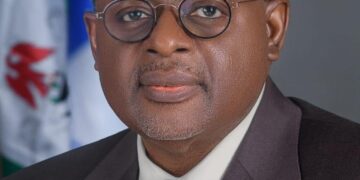














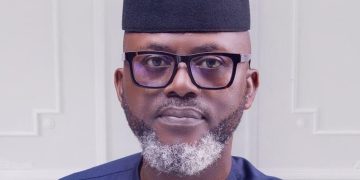
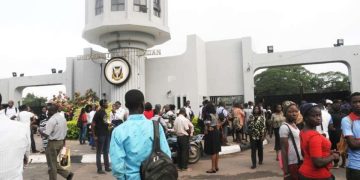
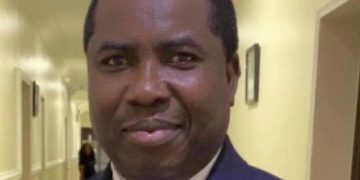


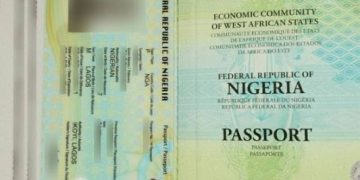




TRULY,SEN. OTU IS RE-MAKING CROSS RIVER AS THE NATION’S INVESTMENT PARADISE. THE RETAKING OF TINAPA FROM AMCON; THE RETRIEVAL OF TRANSCORP HOTEL BACK TO METROPOLITAN HOTEL,THE FIXING OF ROADS INFRASTRUCTURE,THE AIRPORT INFRASTRUCTURE AND THE PROVISION OF 4 ADDITIONAL FLEET INTO STATE AIRCRAFT AMONG OTHERS LENDS CREDENCE TO THE FACT THE PEOPLE FIRST GOVERNMENT OF SEN. OTU IS POISED TO TURN AROUND THE ECONOMY OF THE STATE FOR THE BETTER. THE TOGA OFTEN WORN CROSS RIVER, REFERRING TO IT ALBEIT DEROGATORILY AS A ‘CIVIL SERVICE’ STATE WILL SOON HAVE NO PLACE ON PEOPLE’S LIPS.
very correct